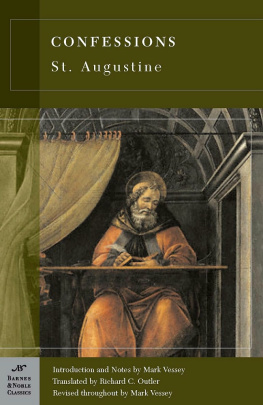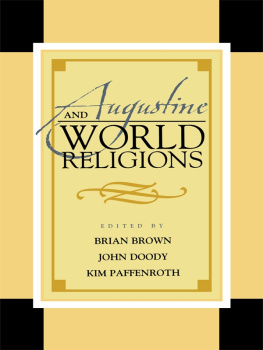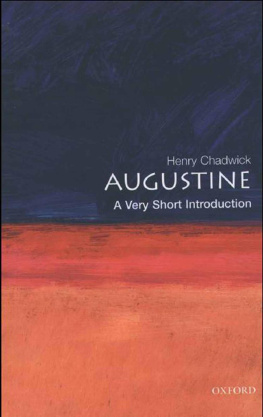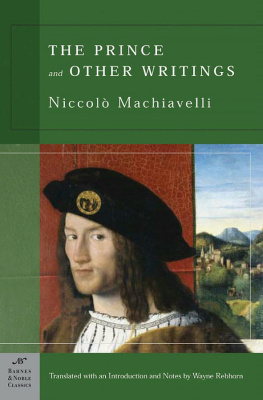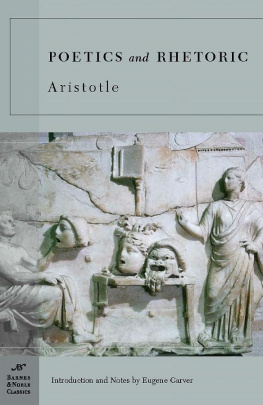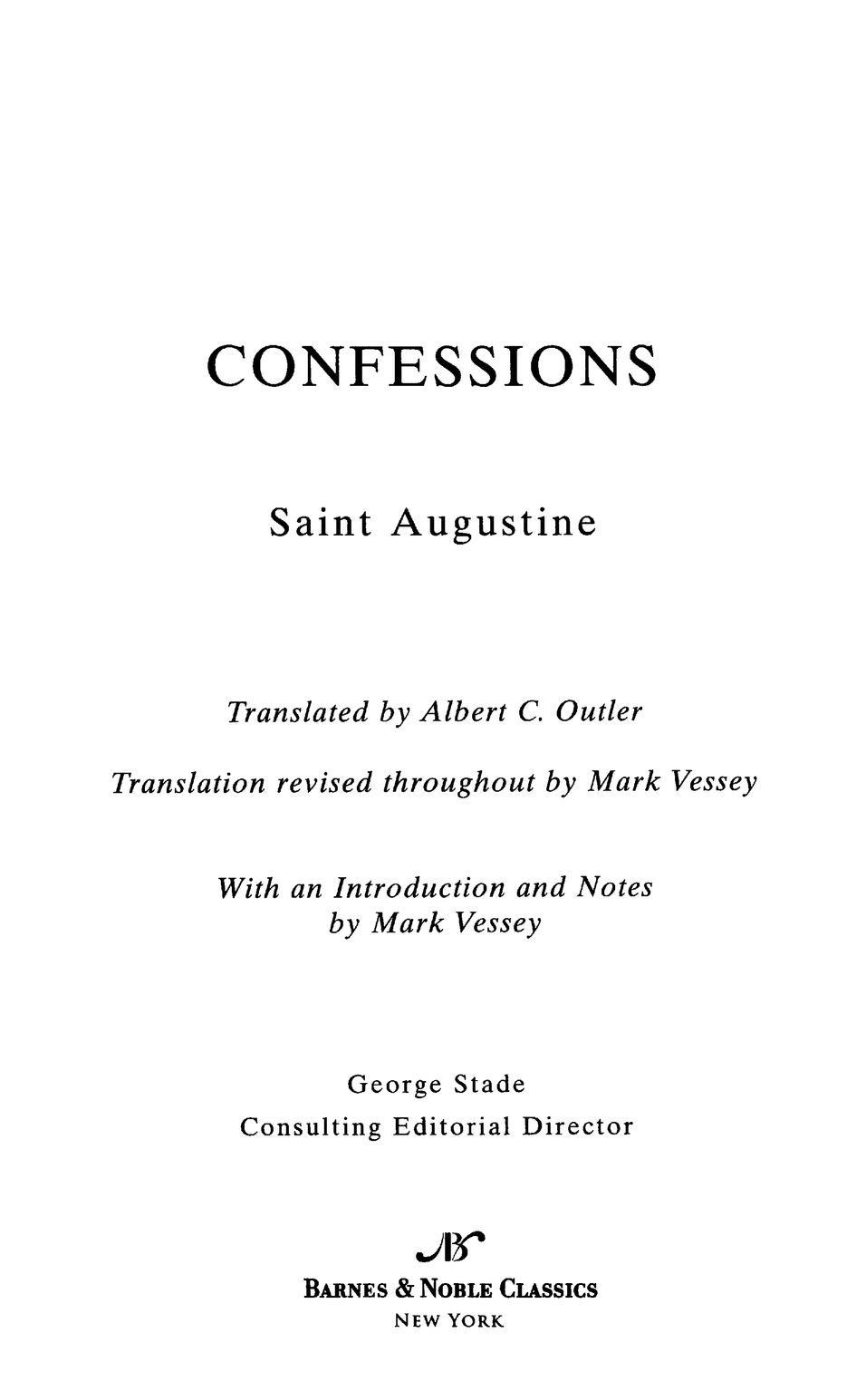of Hippo Saint Augustine - Confessions
Here you can read online of Hippo Saint Augustine - Confessions full text of the book (entire story) in english for free. Download pdf and epub, get meaning, cover and reviews about this ebook. City: New York;Algeria;Hippo (Extinct city, year: 2009;2007, publisher: Barnes & Noble Classics, genre: Religion. Description of the work, (preface) as well as reviews are available. Best literature library LitArk.com created for fans of good reading and offers a wide selection of genres:
Romance novel
Science fiction
Adventure
Detective
Science
History
Home and family
Prose
Art
Politics
Computer
Non-fiction
Religion
Business
Children
Humor
Choose a favorite category and find really read worthwhile books. Enjoy immersion in the world of imagination, feel the emotions of the characters or learn something new for yourself, make an fascinating discovery.
- Book:Confessions
- Author:
- Publisher:Barnes & Noble Classics
- Genre:
- Year:2009;2007
- City:New York;Algeria;Hippo (Extinct city
- Rating:5 / 5
- Favourites:Add to favourites
- Your mark:
Confessions: summary, description and annotation
We offer to read an annotation, description, summary or preface (depends on what the author of the book "Confessions" wrote himself). If you haven't found the necessary information about the book — write in the comments, we will try to find it.
- New introductions commissioned from todays top writers and scholars
- Biographies of the authors
- Chronologies of contemporary historical, biographical, and cultural events
- Footnotes and endnotes
- Selective discussions of imitations, parodies, poems, books, plays, paintings, operas, statuary, and films inspired by the work
- Comments by other famous authors
- Study questions to challenge the readers viewpoints and expectations
- Bibliographies for further reading
- Indices & Glossaries, when appropriateAll editions are beautifully designed and are printed to superior specifications; some include illustrations of historical interest. Barnes & Noble Classics pulls together a constellation of influencesbiographical, historical, and literaryto enrich each readers understanding of these enduring works. One of the first personal histories ever written, The Confessions of St. Augustine offers more than a gripping narrative of one mans battle against doubt. It is also a brilliant work of theology that helped set the foundation for much of modern Christian thought. In a series of thirteen books, Saint Augustine displays a profound and searching intellect as he examines his life: his early memories of growing up in Roman North Africa during the fourth century A.D., his disgusted response to his mothers faith, his agonies and sins as a student, and finally his dramatic conversion in a garden in Milan. Along the way, the Confessions explores with great force and artistry the nature of time, mind, and memory, and lays out Augustines interpretation of the Book of Genesis. Throughout, Augustines remarkable depth of thinking is matched only by his elegance of expression, which has powerfully moved readers for more than 1500 years. A timeless classic, the Confessions remains an unforgettable portrait of an individuals struggle for self-definition in the presence of a powerful God. Mark Vessey is Professor of English at the University of British Columbia. He is the author of Latin Christian Authors in Late Antiquity and Their Texts and co-editor of Augustine and the Disciplines: Cassiciacum to Confessions. He has written extensively on the reception of early Christian Latin writings in the Renaissance and later periods.
of Hippo Saint Augustine: author's other books
Who wrote Confessions? Find out the surname, the name of the author of the book and a list of all author's works by series.

